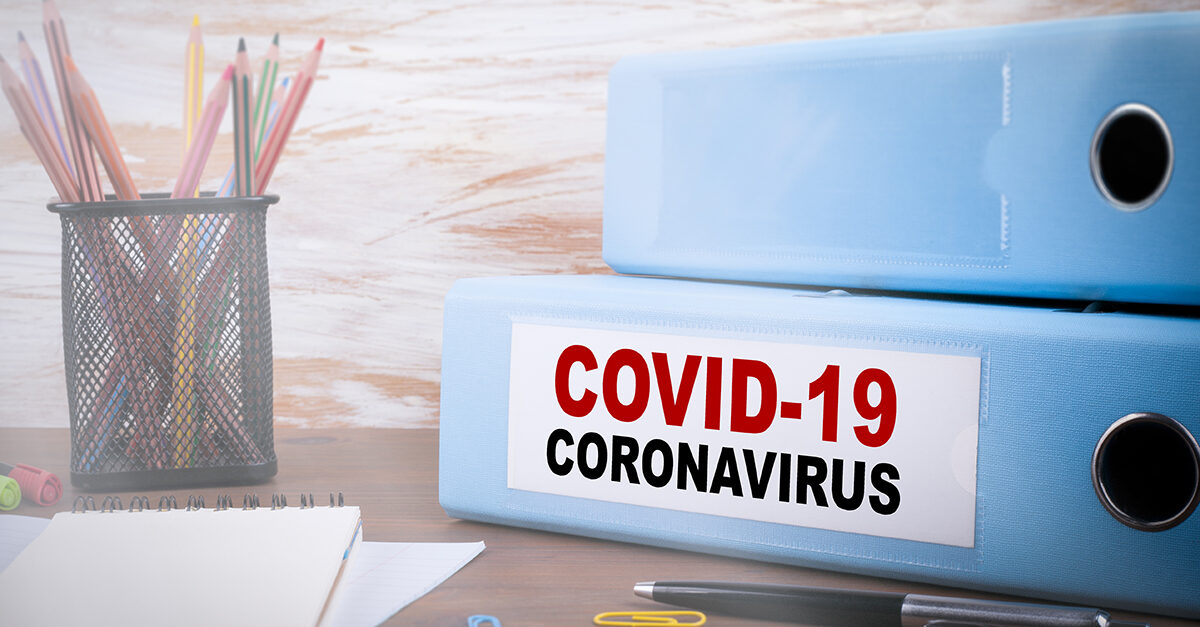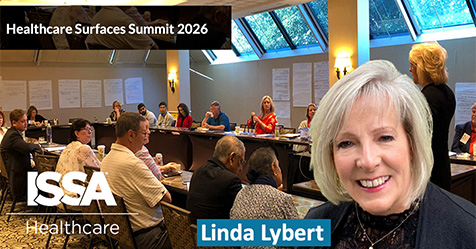As 2021 gets underway, what do you as a facility manager, in-house service provider, or building service contractor (BSC) need to know about COVID-19 workplace standards? A patchwork of federal and state-level guidance is being implemented across the U.S. that addresses reopening workplaces following COVID-19-induced shutdowns. This article provides resources on such guidance at the federal level, as well as information on enforceable emergency workplace rules that some states have implemented in the—at present—absence of relevant federal standards.
Currently four states have issued a “temporary emergency workplace safety standard,” which is enforceable by state Occupational Safety and Health Administrations (OSHA). ISSA’s government affairs department anticipates many states and possibly the federal government are likely to follow suit in early 2021.
Many of these enforceable rules have requirements related to the use of personal protective equipment (PPE), cleaning, disinfecting, and hand hygiene, which are of particular relevance to the cleaning industry as a whole. Numerous states and municipalities also have their own COVID-19 worker safety-related guidance, executive orders, and protective ordinances. In these cases, contact your state and local governments directly
for information.
At the national and international levels
Currently there are no federal standards in place to protect workers from COVID-19 in the workplace. Rather, U.S. OSHA, the U.S. Centers for Disease Control and Prevention (CDC), and the U.S. Environmental Protection Agency (EPA) have all issued the following reopening guidelines. The guidelines do contain recommendations, as well as, in the case of OSHA for instance, descriptions of pre-COVID-19 mandatory safety and health standards.
Since the start of the coronavirus pandemic through December 24, 2020, OSHA has issued citations arising from 294 inspections for violations relating to the coronavirus, resulting in proposed penalties totaling US$3,849,222. OSHA inspections have resulted in the agency citing employers for violations, including failures to:
- Implement a written respiratory protection program
- Provide a medical evaluation, respirator fit test, training on the proper use of a respirator, and personal protective equipment
- Report an injury, illness, or fatality
- Record an injury or illness on OSHA recordkeeping forms
- Comply with the General Duty Clause of the Occupational Safety and Health Act of 1970.
Under this act, employers are responsible for providing safe and healthful workplaces for their employees. Employers can visit the OSHA standards database on the OSHA website. Resources also are available on the agency’s COVID-19 webpage to help employers comply with these standards (see regulatory resources sidebar).
On January 21, 2021, newly inaugurated President Biden signed 10 executive orders and other directives relating to COVID-19. One of those orders calls for the immediate release of OSHA guidance for employers on best practices for keeping workers safe from COVID-19. The order demands that OSHA enforce worker health and safety requirements. ISSA continues to closely monitor this important issue for the cleaning industry. The association is generally supportive of one federal COVID-19 workplace standard and looks forward to working with the new administration on this critical issue to safely reopen our economy.
At the state level
California—The board overseeing California’s Division of Occupational Safety and Health voted on November 19, 2020 to advance a slate of workplace protocols. Under the new standards, employers would have to create written COVID-19 prevention policies that identify and mitigate workplace-specific hazards. Employers also would have to provide face coverings and PPE at no cost to workers.
The rules would apply to the employers of most private- and public-sector workers statewide, except those in health care who are already covered under a 2009 state law governing infectious airborne illnesses. California’s emergency rules will likely be in place for six months, though officials are expected to convene an advisory committee to consider whether permanent policies should be adopted to safeguard against future pandemics.
Michigan—The Michigan Occupational Safety and Health Administration (MIOSHA) issued emergency COVID-19 rules, which took effect on October 14, 2020, and will remain in place for six months. MIOSHA’s emergency COVID-19 regulations require virtually all employers in the state to implement risk-reducing measures in the workplace, including having a policy prohibiting in-person work when remote work is feasible.
Oregon—Oregon became the third state to implement a temporary rule addressing COVID-19 in all workplaces. The rule is a continuation of existing Oregon Health Authority guidance, which includes physical distance, face masks, and sanitation. The rule took effect on November 16, 2020, and is slated to last until May 2021.
Virginia—Virginia was the first state to issue an emergency temporary standard in July 2020, requiring employers to follow guidelines or face fines. The Virginia Safety and Health Codes Board voted to approve rules for businesses that include social distancing requirements, notifications for employees when a co-worker has tested positive for the coronavirus, and timelines for when employees who recover from the virus can return to work.
On January 13, 2021, Virginia became the first state in the nation to enact a permanent rule requiring employers to take steps to protect workers from COVID-19 infection on the job. The Virginia Safety and Health Codes Board voted to approve the measure, ensuring that protections for workers will continue when the state’s emergency temporary standard expires on January 26, 2021. The permanent rule largely mirrors the temporary standard, which groups jobs into categories of high, medium, and low exposure risk. It continues a requirement for employers to create a workplace infection protection program and to train workers on how to comply.
In addition, the standard sets mandates for on-the-job social distancing, cleaning, and wearing of face masks. The permanent rule is expected to be implemented before January 26; the new rule is poised to take effect following a review by the office of Governor Ralph Northam and publication in a Richmond, Virginia, print newspaper.
Stay informed
For additional and up-to-date information on COVID-19 workplace standards and state-level resources, visit the ISSA website. Note that the information in this article is advisory in nature; we encourage you to consult your state and local governments for more specific information.




